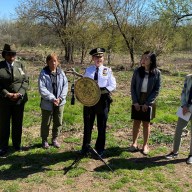Medicaid authorities are getting very aggressive with spousal refusal litigation cases. This is clearly a cause of concern for any elder law planning involving married couples. When one spouse requires Medicaid nursing home care coverage (“institutional spouse”), the well spouse (“community spouse”) can sign a spousal refusal in connection with the institutional spouse’s Medicaid application. By signing a spousal refusal, the community spouse refuses to contribute to the applicant spouse’s health care and will not make his/her income and assets available for the spouse’s health care expenses. While Medicaid is required to supply coverage for the institutional spouse provided he/she is otherwise eligible, if the community spouse has income or assets above a certain level, Medicaid has the right to bring an action against such spouse to recover sums it paid for the care of the institutional spouse.
In the recent case of Clement v. Meagher (N.Y. Supreme Court, Nassau County, No. 11747-05, August 14, 2006, unpublished), a New York trial court found that undue hardship for the community spouse was not a defense to an action to recover unpaid Medicaid benefits. In Clement, Edward Meagher entered a nursing home and applied for Medicaid coverage. His wife submitted a signed spousal refusal in connection with the application. The Nassau County Department of Social Services found that at the time that Mrs. Meagher filed the spousal refusal her assets were in excess of what she was allowed to maintain (referred to as the community spouse resource allowance, or CSRA – a minimum of $74,820 and a maximum of $99,400, or _ of the married couple’s resources, whichever is greater) and her income was above the allowable threshold (referred to as the minimum monthly maintenance allowance, or MMMNA – $2,489). The Department of Social Services (the “Department”) sued Mrs. Meagher in order to recover benefits that were paid on Mr. Meagher’s behalf.
At the time that the lawsuit was commenced, Edward Meagher had received Medicaid benefits in the amount of $98,342. By the time the Department filed its motion for summary judgment, the benefits paid on Edward’s behalf had increased to $166,763. The Court ruled that the Department could amend its complaint to increase the amount of recovery to $166,763.
In defending the Department’s claim against her, Mrs. Meagher did not assert that her assets were in fact below the CSRA or that her monthly income was below the MMMNA. Rather, she claimed that making her contribute to her husband’s support would constitute an undue hardship. The Court noted, that, while it sympathized with Mrs. Meagher’s predicament, both the CSRA and MMMNA were thresholds set by the legislature, and the Court was not in a position to adjust such amounts on its own. It also cited previous case law noting that the maintenance of one’s prior lifestyle at the expense of the public was not the intent of the Medicaid legislation.
Awareness of this rather harsh court decision is important because it mandates that prudence and care be exercised with respect to spousal planning in the context of Medicaid. While spousal refusal is still a viable vehicle through which to get an institutional spouse on Medicaid, the community spouse’s assets are clearly vulnerable. Advanced planning with a competent elder law attorney – both with respect to possibly transferring assets out of both spouses’ names at an earlier date, or post spousal refusal planning with annuities and promissory notes should be explored. There are techniques that can reduce or eliminate the chance of a spouse suit by the Department of Social Services.
Ronald A. Fatoullah, Esq. is the principal of Ronald Fatoullah & Associates, a law firm that concentrates in elder law, estate planning, Medicaid planning, guardianships, estate administration, trusts, wills and special needs planning. The firm has offices in Forest Hills, Great Neck, and Brooklyn, NY. Mr. Fatoullah has been named a “fellow” of the National Academy of Elder Law Attorneys and is a former member of its Board of Directors. He also serves on the Executive Committee of the Elder Law Section of the New York State Bar Association. Mr. Fatoullah has been certified as an Elder Law Attorney by the National Elder Law Foundation. Mr. Fatoullah is a co-founder of Senior Umbrella Network of Queens. This article was written with the assistance of Debby Rosenfeld, Esq., a senior staff attorney at the firm. The firm can be reached by calling (718) 261-1700 or toll free at 1-877-ELDER-LAW or 1-877-ESTATES.*Certified as an elder law attorney by the National Elder Law Foundation.





























